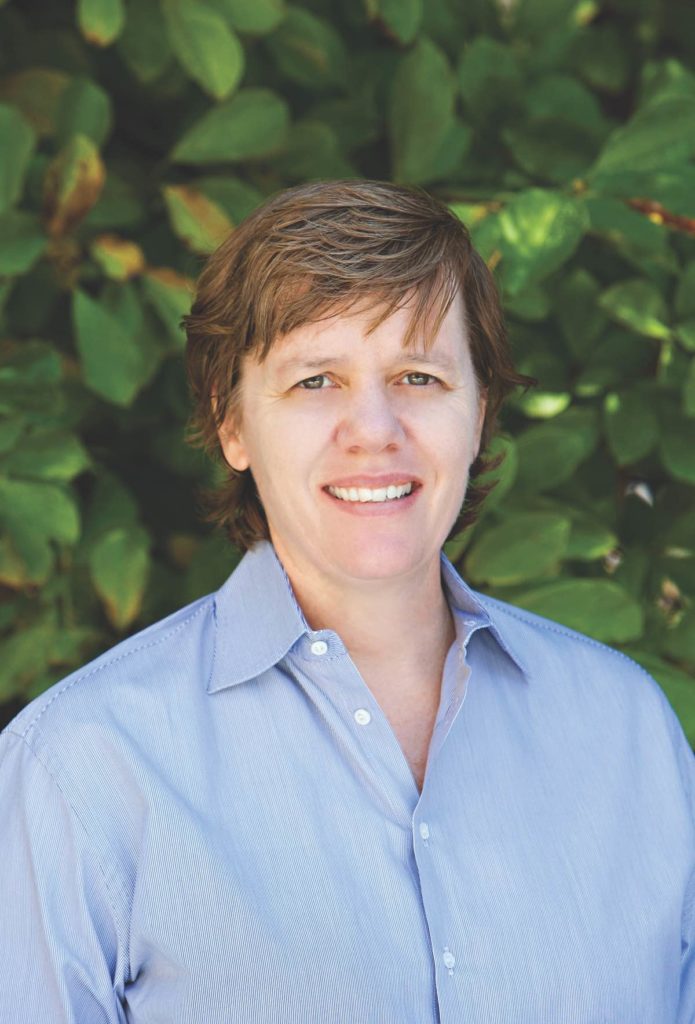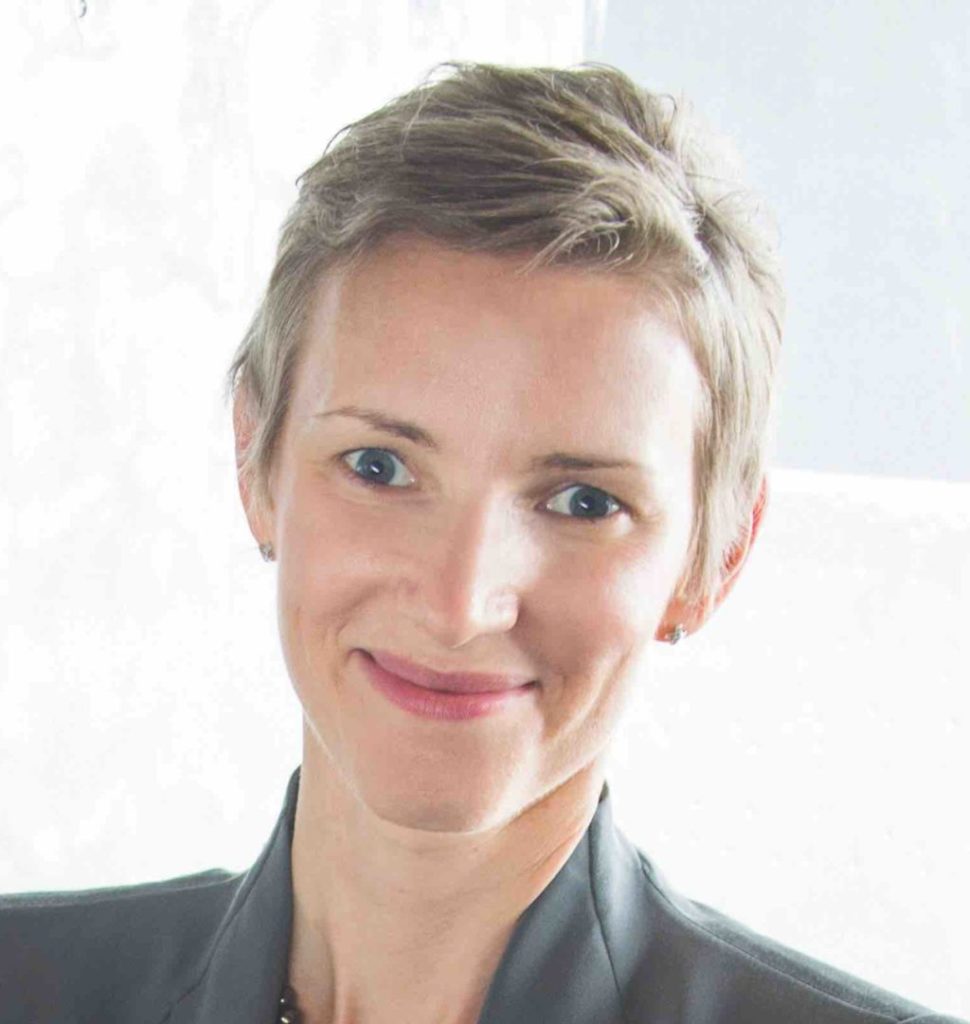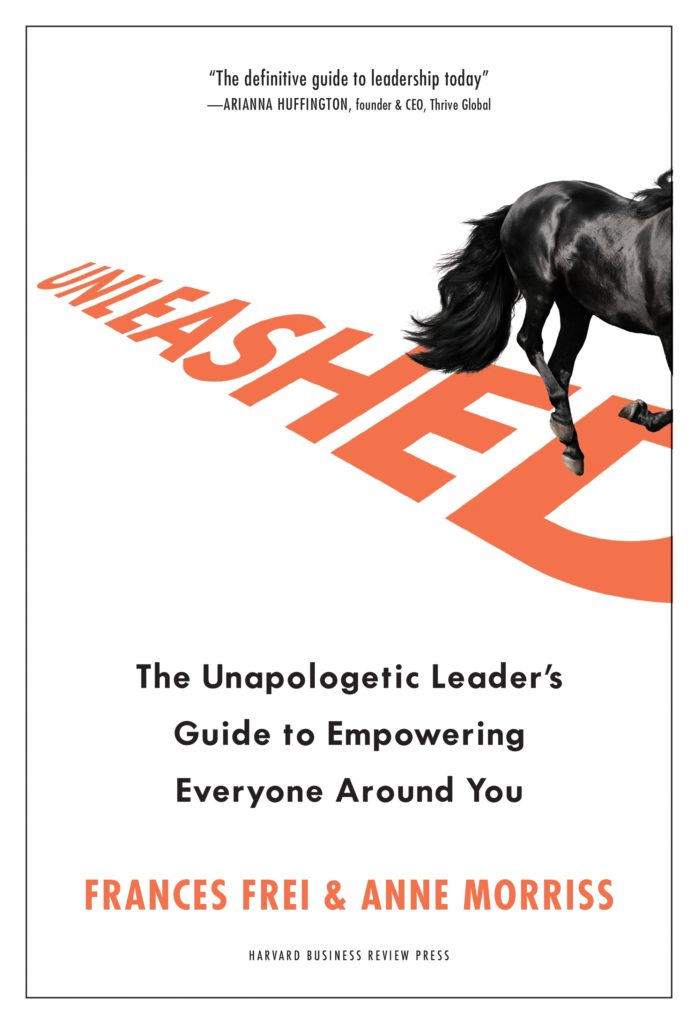By Sharon Broughton (September 2, 2020)
Unleashed: The unapologetic leader’s guide to empowering everyone around you, Frances Frei and Anne Morriss, Harvard Business Review Press, June 2, 2020 Hardcover, 240 pp., $37.01
It’s not about you.
That’s the one thing to know about being a leader, say Frances Frei and Anne Morriss, authors of Unleashed: The unapologetic leader’s guide to empowering everyone around you. Rather, to be an exemplary leader is to empower other people as a result of your presence, and to make sure that impact endures into your absence.
Frances Frei is a professor at Harvard Business School (HBS) who shares her research results with captivating clarity – evidenced by her Tedtalk on building trust, and in her previous book also co-authored with Morriss – Uncommon Service: How to win by putting customers at the core of your business. Frei is also a highly regarded contributor to the HBS Strategic Perspectives in Nonprofit Management program (SPNM), offered annually to an international cohort of nonprofit leaders. Morriss is a sought-after leadership coach and founder of The Leadership Consortium, an accelerator helping mission-driven leaders thrive.
For nonprofit leaders Unleashed offers a compelling blueprint for successful leadership, integrating theory with practice. It offers case examples that reinforce the essential requirement of unrelenting focus on other people’s potential.
In the pages of Unleashed Frei and Morriss promote an empowerment leadership worldview outlined by a framework of Presence and Absence. Presence is comprised of trust, love and belonging. Absence is delineated by strategy and culture. In a diagram of the model, Trust is the starting point at the centre of a ring of concentric circles: Trust (self); Love (other); Belonging (team); Strategy (organization) and Culture (community and beyond).
Having been sought by Uber to help the company navigate its very public crisis in leadership and culture, Frei shares a unique perspective from the corporate sector. Her insider view of the challenges faced in transforming Uber’s brand and culture, as it was ‘heading toward toxic,’ grounds the theory in high-stakes practice. She brings the concept of trust to life. If this company could get on the right path, starting with re-building trust, the potential to transfer learnings to other organizations seeking to restore humanity in their workplaces was significant.
Trust is the starting point for leading others, but first the leader must trust themselves. We learn the concept of the ‘trust triangle’ based on the pillars of authenticity, logic and empathy. If a leader struggles with one of these areas, that is their ‘wobble’, while the strongest area is their ‘anchor’. Practical ways to work on the ‘wobbles’ a leader identifies through the tools offered prepares them for the next test – love.
While Love seems an unusual focus for a leadership text, it rings true for nonprofit leaders whose missions focus on serving others. When a gap exists between mission-based programming and operational actions, love may be the answer. The concepts of high standards and deep devotion bring this to life.
“Encouraging self-assessment of where a leader may fall short, we learn about strengthening leadership practice to achieve greater results by catching people doing the right things and providing specific and sincere praise; ensuring the ratio of positive to constructive reinforcement is at least 5:1; and role-modelling through bold action and living the highest standards—including using less ‘me’ and more ‘we’ language.”
Belonging is centred on empowering teams to excel not in spite of, but because of their differences. Organizations across sectors are grappling today with addressing long-term systemic racism against Black, Indigenous and People of Colour.
While Unleashed was written before the widespread protests of 2020, its message lands at an ideal time. Belonging is less about diversity and inclusion and more about embracing excellence by championing difference. According to the authors, the four steps to achieving belonging are attracting and selecting diverse talent; making sure everyone has an equal opportunity to thrive; promoting your best people through a rigorous, transparent system; and retain, retain, retain. Particularly powerful is the description of a culture of inclusion, with its four progressive levels. Where does your organization fit? Do employees feel safe, welcomed, celebrated or cherished – this last being where a culture of inclusion permeates fully.
Moving from the focus on Presence, we learn that ensuring strength in strategy and culture enables the most profound impact in the Absence of the leader. Strategy in the corporate world is to be better than your competitors at the things that matter most to your customers.
“Dare to be bad at some things in order to be exceptional at what has the greatest impact.”
Culture fills the void of whatever strategy has not made clear. You empower communities, organizations and beyond, when you change the way people think and act. Through examples including TaskRabbit, RiotGames, Microsoft and the Harvard Business School itself, we learn ways to proactively identify and address pervasive culture problems such that everyone becomes involved in owning a rigorous and optimistic way forward. Despite the corporate focus, much of this is transferable to the nonprofit sector.
Insets are featured throughout the book to apply the content and promote self-reflection. Starting with “ten signs it might be all about you’’ as a self-diagnostic of the reader’s leadership approach, to stories of real-life leaders who exemplify aspects of their model, to action lists of ‘ten ways’ to enact change starting tomorrow, there is no doubt that Frei and Morriss aim to unleash and galvanize leaders to act now, to change lives, organizations, and beyond.
For those leading today’s nonprofits, ready and set to make the world a better place, heed this call to action and unapologetically start empowering everyone around you.

Frances Frei 
Anne Morriss
Also reviewed by Sharon Broughton
An asset to any group’s recovery strategy (May12, 2020)
A widening gap between the rich and poor—the new Canadian ‘normal’ (February 18, 2020)
Building social connectedness in a social media world (October 19, 2019)
